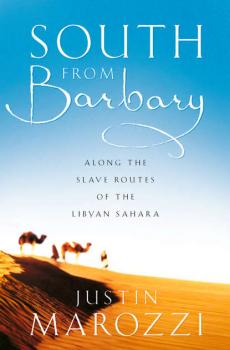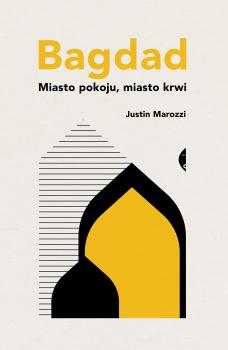ТОП просматриваемых книг сайта:
Justin Marozzi
Список книг автора Justin MarozziАннотация
The stunning debut of a talented young travel writer.‘South from Barbary’ – as 19th-century Europeans knew North Africa – is the compelling account of Justin Marozzi’s 1,500-mile journey by camel along the slave-trade routes of the Libyan Sahara.Marozzi and his travelling companion Ned had never travelled in the desert, nor had they ridden camels before embarking on this expedition. Encouraged by a series of idiosyncratic Tuareg and Tubbu guides, they learnt the full range of desert survival skills, including how to master their five faithful camels.The caravan of two explorers, five camels with distinctive personalities and their guides undertook a gruelling journey across some of the most inhospitable territory on earth. Despite threats from Libyan officialdom and the ancient, natural hardships of the desert, Marozzi and Ned found themselves growing ever closer to the land and its people.More than a travelogue, ‘South from Barbary’ is a fascinating history of Saharan exploration and efforts by early British explorers to suppress the African slave trade. It evokes the poetry and solitude of the desert, the companionship of man and beast, the plight of a benighted nation, and the humour and generosity of its resilient people.Written with infectious wit and insight, and a terrific historical grasp, this is a superbly readable travel book about a rarely visited but enthralling and immensely beautiful region of the world.
Аннотация
A powerful account of the life of Tamerlane the Great (1336-1405), the last master nomadic power, one of history’s most extreme tyrants, and the subject of Marlowe’s famous play. Marozzi travelled in the footsteps of the great Mogul Emperor of Samarkland to write this wonderful combination of history and travelogue.The name of the last great warlord conjures up images of mystery and romance: medieval warfare on desert plains; the clash of swords on snow-clad mountains; the charge of elephants across the steppes of Asia; the legendary opulence and cruelty of the illiterate, chess-playing nemesis of Asia. He ranks alongside Alexander as one of the world’s great conquerors, yet the details of his life are scarcely known in the West.He was not born to a distinguished family, nor did he find his apprenticeship easy – at one point his mobile army consisted only of himself, his wife, seven companions and four horses – but his dominion grew with astonishing rapidity. In the last two decades of the fourteenth century and the beginning of the fifteenth, he blazed through Asia. Cities were razed to the ground, inhabitants tortured without mercy, sometimes enemies were buried alive – more commonly they were decapitated. On the ruins of Baghdad, Tamerlane had his princes erect a pyramid of 90,000 heads.During his lifetime he sought to foster a personal myth, exaggerating the difficulties of his youth, laying claim to supernatural powers and a connection to Genghis Khan. This myth was maintained after his death in legend, folklore, poetry, drama and even opera, nowhere more powerfully than in Marlowe’s play – he is now as much a literary construct as a historical figure. Justin Marozzi follows in his path and evokes his legacy in telling the tale of this fabulously cruel, magnificent and romantic warrior.



